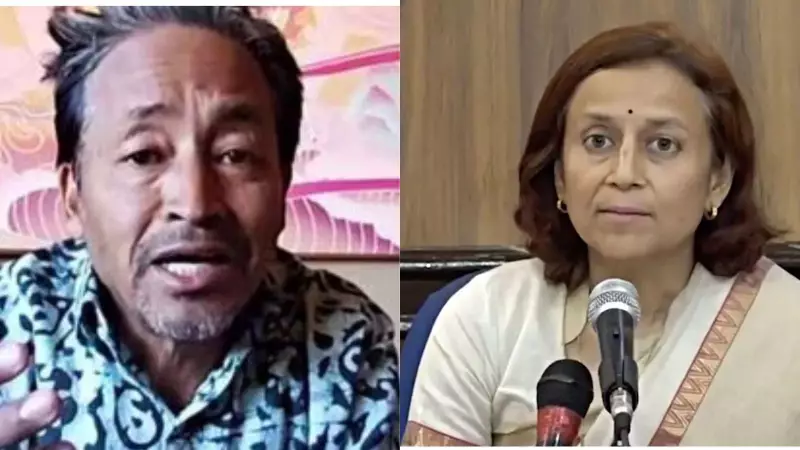
The wife of prominent Ladakhi activist and education reformer Sonam Wangchuk has approached the Supreme Court of India, challenging his detention under the stringent National Security Act (NSA). This legal move comes as Wangchuk continues his 'climate fast' in Leh, demanding statehood and constitutional safeguards for the Union Territory of Ladakh.
Legal Battle Against 'Unlawful' Detention
The petition filed before the apex court argues that Wangchuk's detention is not only unlawful but also represents a deliberate attempt to silence peaceful dissent. It highlights that the activist, renowned for his educational innovations and environmental advocacy, has been targeted for leading democratic protests.
The National Security Act allows for preventive detention for up to 12 months without formal charges. Wangchuk's legal team contends that invoking this draconian law against a peaceful protester violates fundamental constitutional rights, including freedom of speech and expression.
The Ladakh Movement: Statehood and Sixth Schedule
Wangchuk's detention is directly linked to his leadership in the ongoing mass movement in Ladakh. The key demands of the protestors include:
- Full statehood for the Union Territory of Ladakh
- Inclusion under the Sixth Schedule of the Constitution to protect tribal land and culture
- Job security and democratic safeguards for the local population
- Environmental protection of the fragile Himalayan ecosystem
The movement has gained significant momentum, with widespread participation from various sections of Ladakhi society, including students, religious leaders, and civil society organizations.
Supreme Court's Role in Protecting Democratic Rights
This case puts the spotlight on the Supreme Court's crucial role as the guardian of fundamental rights. The petition urges the court to examine whether the state can misuse laws like the NSA to curb legitimate democratic protests.
The hearing is expected to address critical questions about the balance between national security concerns and the right to peaceful assembly and protest in a democracy.
As the legal battle unfolds, Wangchuk continues his protest in Leh, drawing national and international attention to the demands of the Ladakhi people and the importance of protecting democratic spaces in India.





